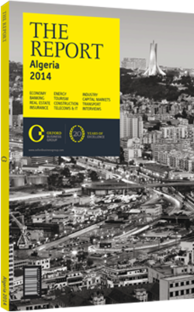OBG talks to to Kamel Moula, President, Club des Entrepreneurs & des Industriels de la Mitidja

Interview: Kamel Moula
What are some of the biggest challenges faced by the private sector in Algeria?
KAMEL MOULA: The most common companies in Algeria are family-owned businesses. Since the opening of the market, we have witnessed a proliferation of family businesses, which today account for 60% of GDP. While these companies have managed to develop fast, it is still important to highlight the challenges they face. Governance within family-owned businesses is a key issue, as well as unfair competition that undermines domestic production. In order to provide the private sector with the necessary support, administrative reform is needed to enable the development of productive investment. All auxiliaries to the development of investment must work together to stimulate the industrial sector. Moreover, contribution from the national investment fund is vital in supporting Algerian companies during their creation, expansion and programme design.
How will the reinstatement of documentary remittance and documentary credit impact imports?
MOULA: Article 8 of the Finance Law calls for the easing of transaction procedures for importing companies, enabling them to increase production volumes. Although the reinstatement of the documentary remittance has solved the money transfer issue, it has also caused serious delays in the collection of business transaction documents. The submission of documents occurs at a different time to the delivery of the merchandise stored in the ports, resulting in unnecessary costs. It would make more sense to ease the freight forwarders’ task by allowing them to conduct Customs clearance procedures upon delivery of goods. Free transit remains the most viable approach to freeing companies from this disincentive to their development.
What will be the long-term impact on the export sector of the free trade agreement with the EU?
MOULA: Algeria’s trade balance with the EU, excluding hydrocarbons, shows a significant deficit. Algerian expectations following the signing of the free trade agreement have yet to be achieved. This is demonstrated by the postponement of the establishment of a free trade zone from 2017 to 2020, as well as the reinstatement of a Customs tax for certain products.
The trade analysis at the end of the first quarter of 2014 showed an 8% coverage of the free trade agreement for imports and exports, resulting in a €9.56bn import bill and a €808.6m export bill. However, Algeria’s neighbours have a much higher cover rate; Tunisia achieved 85% coverage with the EU when the pricing scheme was dismantled in 2010.
Algeria also benefits from a competitive advantage in several sectors such as agriculture, and its agro-climatic diversity enables diversified production year round. There is also vast availability of non-exploited agricultural land, estimated at more than 40,000 ha.
The petrochemicals industry has potential too, as Algeria only exports fertilisers and ammonia to the EU. The renewable energy segment is also promising. The project to produce solar energy in the Sahara positions Algeria as a future electricity supplier to the EU. Lastly, there is strong potential in the mining industry, with Algeria having more than 32 identified mineral substances, including steel, phosphate, marble, lead, zinc, copper and precious metals such as silver and gold.
How can Algeria further strengthen collaboration between the private sector and universities?
MOULA: Conventional partnerships have been signed with the universities of Saad Dahlab in Blida, Médéa, Chlef and Khemis Miliana. Student mobility agreements signed with foreign universities work to enhance the development of international exchange programmes in the education sector and foster further international research and development (R&D). Such collaboration is vital for innovation in the economic and higher education sectors. Furthermore, technical training in the education sector helps to open new doors for students and makes them employable after graduating.
You have reached the limit of premium articles you can view for free.
Choose from the options below to purchase print or digital editions of our Reports. You can also purchase a website subscription giving you unlimited access to all of our Reports online for 12 months.
If you have already purchased this Report or have a website subscription, please login to continue.

